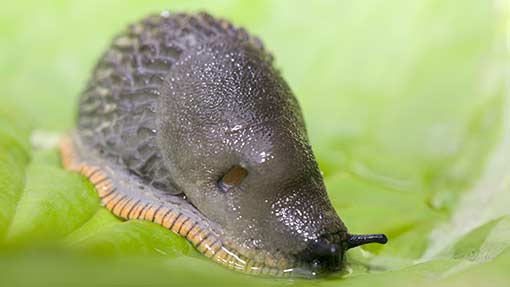Danes share tough lesssons on slug control
 © Global Warming Images/Rex Features
© Global Warming Images/Rex Features Tough pesticide rules mean Danish growers only have one type of slug pellet to use and so need to use cultural methods to help control these damaging pests.
In Denmark, only ferric phosphate can be used in the battle against slugs, while in the UK the loss of methiocarb means growers here only have ferric phosphate and metaldehyde to chose.
Danish agronomist Henrik Madsen, who is based in Kolding, Southern Denmark, says post harvest is a critical time for Danish growers battling the pests with the climate perfect for slug activity.
“We’ve had a lot of rain in the last couple of weeks. Luckily most farmers have finished harvest with about 5% left, but our challenge now is seeding our winter oilseed rape and avoiding it being eaten by slugs,” he says.
See also: Ferric phosphate could prove vital to UK growers
Breaking the green bridge by reducing the amount of volunteers between the harvest and the following crop is critical, Mr Madsen adds.
He encourages growers to cultivate the soil before ploughing in order to reduce the amount of food available to slugs.
Then establishing a fine and consolidated seed-bed will prevent the slugs from feeding on the seed and seedlings.
Main slug threats in Denmark
- No 1: Deroceras agreste – Grey field slug
- No 2: Arion lusitanicus – Spanish slug
In cloddy seed-beds, slugs will start to kill oilseed rape and wheat seeds almost immediately after sowing so achieving a fine structure is vital, says Mr Madsen, particularly on heavy clay land.
Ferric phosphate is then the only way to control slugs once the crop is drilled, but Mr Madsen admits it is quite expensive, costing up to €30/ha.
There can also be problems due to the ferric phosphate products used in Denmark being applied without incorporating a bait into the pellet, which he admits can result in the slugs not finding product.
“It is the only way we can do something about it though. At the moment quite a few farmers have added ferric phosphate because we have seen slugs in the field and it seems to work out pretty well with the crops generally surviving,” he says.

